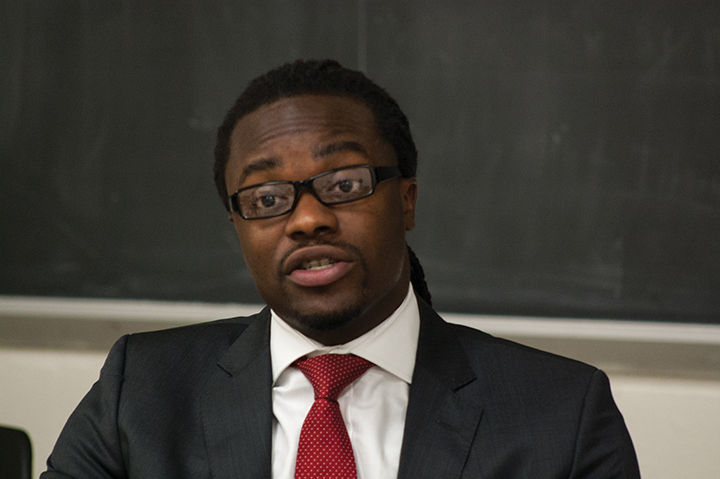
Alonzo Washington
Del. Alonzo Washington (D-Prince George’s) grew up in Prince George’s County as one of six siblings with a single mother. No one in his family had ever attended college.
In middle school, the organization First Generation College Bound Inc. reached out to him and provided guidance until he graduated from this university with a criminology and criminal justice degree in 2007.
“We provided him encouragement and support to attend college and let him know that he could go when he was in eighth grade, and now he’s a state delegate,” said Joe Fisher, FGCB’s executive director.
Washington pushed a bill through the General Assembly this session to create a state grant program that would help fund organizations like the FGCP and encourage low-income high school students to attend college.
“It’s organizations like these that go unnoticed by the state and the local governments,” Washington said.
Washington’s bill passed in the House of Delegates, 131-5, while the Senate version of the bill, sponsored by Sen. Jim Rosapape (D-Prince George’s), passed unanimously. The bill creates a two-year Low–Income Student Outreach and College Access Pilot Program, but Washington said he hopes it will become a permanent fixture in the state.
The state would provide funding through matching grants, meaning organizations that prove they have the ability to privately raise funds can compete for grants from the state to increase outreach efforts.
The bill originally had a provision requiring a $500,000 commitment from the state, but it was amended because of state budget woes and now Hogan will decide how much money will go to the grant fund.
Washington said he spoke with Hogan and said the governor seemed very supportive of the bill. Washington said he expects the program to be established this year but doesn’t expect to see significant funding until fiscal year 2017.
Cassie Motz, former University System of Maryland regent and executive director of Baltimore City-based CollegeBound Foundation, said she is glad to see the legislature recognizing the need to help low income students.
“It’s very heartening that the legislature is interested in this issue,” Motz said. “It’s a reflection of the fact that the income gap is growing nationally between wealthy people and low income people.”
CollegeBound provides advising and scholarships to inner-city public school students, including some at this university.
Veronica Richards, a junior criminology and criminal justice and psychology major, said she never expected to attend college.
“College was like this concept that sounded nice, but in reality, it wasn’t supposed to happen,” said Richards, who is first person in her family to attend college. “It was like a fantasy idea I had, but I didn’t think that I was actually going to go.”
During her freshman year at Northwestern High School in Baltimore, Richards became close with the CollegeBound advisor who worked with her school. She described her advisor as a mentor who provided more than just academic support, but also “spiritual and mental help.”
Richards was later accepted to this university and received a full scholarship through the Incentive Awards Program.
“Without my College Bound specialist, without them believing in the students, I would never have applied for the scholarship and I would not be in college because I can not afford to be in college at all,” said Richards, who is studying abroad in Madrid.
Washington said he introduced this bill to give back to students who grew up like him and to help the state reach its goal of having 55 percent of residents receive a college degree by 2025.
“The state needs to take a greater look at what they do and start investing in our nonprofit community so kids that grow up in low-income families like my family did actually have an opportunity,” Washington said. “This wasn’t just an opportunity for me; this was a life change.”



